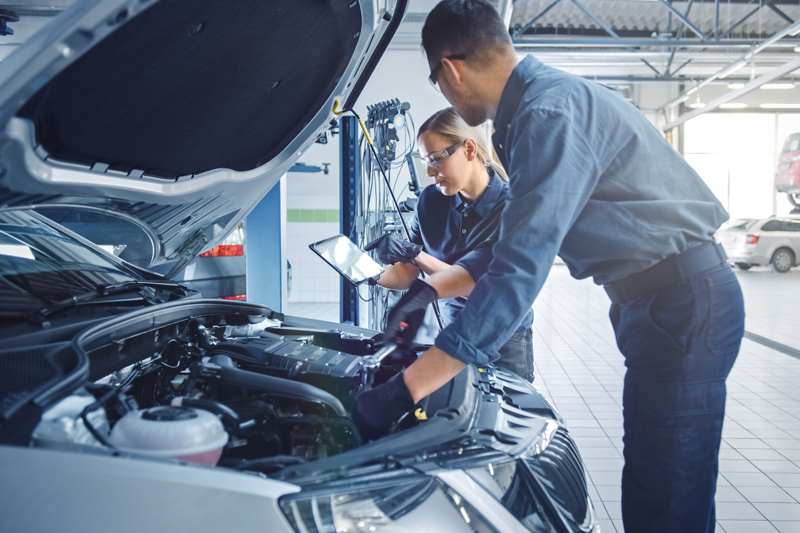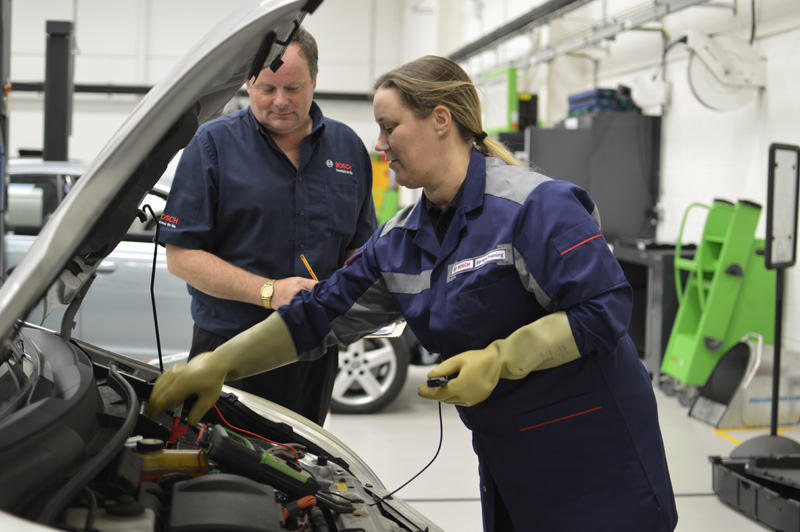
Steve Nash, CEO of the Institute of the Motor Industry talks to PMM about the EV skills gap and the initiatives the body is leading to help the independent sector get EV-ready.
This year has been pivotal for the electric vehicle revolution. Even before the fuel crisis in September – which saw searches for new and used electric vehicles leap by 28% and 61% respectively – the government was clearly focussed on its Road to Zero strategy, which aims to have at least half of new cars ultra-low emission by 2030, with big commitments made to building the charging infrastructure.
However, the latest data from the IMI highlights the skills gap that could severely undermine the government’s ambitions. According to our calculations, 90,000 automotive technicians will be required to provide sufficient workforce to service the volume of zero emissions vehicles predicted to be on UK roads by 2030.
The pace of EV adoption is accelerating, even while the issues around infrastructure remain a barrier. However, once the charging network is fit for purpose and electric vehicles have become more financially accessible, the race will really be on to ensure we have a workforce adequately qualified to provide the essential servicing, maintenance and repair to keep these vehicles safe on the roads.
Why is this important? Well it’s pretty simple. Those who aren’t properly trained or equipped to work on electrified vehicles risk serious injury or potentially fatal shock. And that risk starts from the very basic point of opening the bonnet and knowing what can be unplugged safely right the way through to facilitating repairs on the drivetrain.
Avoiding penalties
Of course safety must be the first priority. But for an employer they also need to realise that anyone working on high voltages must be competent as per the Electricity at Work Regulations 1989 which are enforced by the Health and Safety Executive (HSE). So the financial penalties could be significant too.
There’s no question that the automotive sector is working hard to retrain and up-skill. But it’s a huge mountain to climb and our calculations suggest that there will be shortfall of 35,700 technicians by 2030, with 2026 marking the point at which the skills gap will materialise.

The IMI is lobbying hard for government to support the up-skilling needed with extra funding for training. But whether that comes or not, independents need to start thinking about how they can get their workforce EV-ready. The IMI has spent a number of years, working in close consultation with every part of the sector, to create the IMI TechSafe standards, which provide the training frameworks to ensure that technicians can work safely on electrical systems in every permutation of hybrid and electric vehicles. Those achieving TechSafe accreditation – with a Hybrid and EV Level 2 qualification – will have the skills to ensure that they can work on these complex automotive technologies safely.
TechSafe also gives technicians an easy way to certify their EV competence, centred on EV qualifications, IMI accreditation, accredited training, professional behaviours and a commitment to CPD over an agreed number of years. And this means that electrified vehicle users can access the IMI Professional Register to check the electric vehicle technical competencies of technicians at their local garage. For us, it is the most progressive step towards giving motorists confidence in technician competence.
But we don’t under-estimate the challenge the need to up-skill for EV presents for the independent sector in particular. The well-documented recruitment issues are likely to remain for some time to come and this puts employers between a rock and a hard place, often having to make choices between training and up-skilling and handling the incoming work. However, we believe that the growing portfolio of e-learning tools we have created, including our partnership with the Vocanto e-learning platform, can help overcome these barriers. Vocanto is already well established as a market-leading e-learning tool in a number of sectors. Integrating the IMI training content into this platform therefore made huge sense.
I firmly believe that there is an immense opportunity for the independents that see a value in investing in the skills now for the next stage of the automotive evolution, with IMI TechSafe providing the standards for the sector to work to. The garages that can put themselves ahead of the game now will actually have market advantage, both in the immediate future, and for the long-term.









